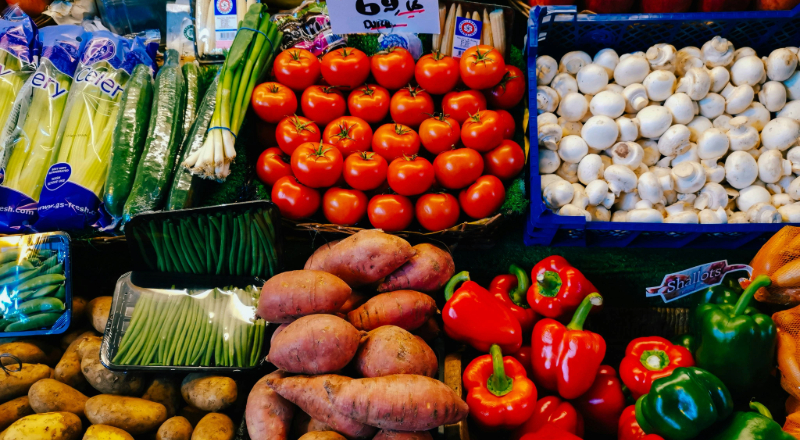Why Community Food Organisations deserve a place in the Child of the North APPG report
By
Andrea Burrows, Dr Claire O’Malley, Dr Helen Moore & Professor Amelia A. Lake
Across the North of England, families are facing a dual crisis: rising food insecurity and growing food waste. In response, Community Food Organisations (CFOs) - like social supermarkets and pantries - are stepping up in powerful, community led ways. These aren’t just places to get food. They’re places of dignity, connection, and hope.

But despite their growing role, CFOs are still flying under the radar. They’re under-researched, inconsistently defined, and often left out of the bigger policy picture. That’s why they were included in the Child of the North APPG report.
What Is the Children of the North APPG?
The Child of the North All-Party Parliamentary Group (APPG) is a cross-party group of MPs, peers, researchers, and practitioners working together to tackle the deep-rooted inequalities affecting children in the North of England. From poverty and poor health to educational disadvantage, the APPG is committed to finding evidence-based solutions that give every child a fair start in life.
Backed by research from the Northern Health Science Alliance (NHSA), Health Equity North and the N8 Research Partnership, the APPG has already produced influential reports on the cost of living, education, and health. Now, it’s time to shine a light on food, and the role CFOs can play in transforming communities and the lives of children.
A Different Kind of Food Support
Unlike traditional food banks, CFOs operate more like supermarkets, offering surplus food at low prices. Often delivered in a familiar, retail-style setting, this model not only reduces food waste but also gives people choice and dignity in how they access food. It’s a far cry from the stigma that can come with emergency food aid.
Research shows that this approach better meets the needs of people experiencing food insecurity. It empowers them, rather than making them feel like recipients of charity.
One Model, Many Faces
CFOs are incredibly diverse. Some are membership-based and serve specific groups; others are open to all. Some offer wraparound support like job training or help with household income; others focus purely on food. This flexibility is a strength, it not only allows CFOs to adapt to local needs, but it also makes it hard to evaluate their impact or share what works best.
Community Food Organisations... aren’t just places to get food. They're places of dignity, connection, and hope.
A recent review (O’Malley et al., under review) found that there’s no single definition of a social supermarket. And many operate informally, relying on local relationships and community goodwill to source food. This makes them agile, but also vulnerable.
Why Now?
Since the pandemic, food insecurity has increased, especially in the North. But so too has the rise of CFOs. In the North East and North Cumbria, there are now 67 social supermarkets. In Middlesbrough alone, the number of Eco Shops, the dominant social supermarket model, has jumped from 9 in 2021 to 28 in 2025.
This growth shows just how much communities value these spaces. But it also raises urgent questions:
- How can we make these models sustainable?
- What support do they need to thrive?
- How do they fit into the bigger picture of public health and food policy?
Why the APPG Report Matters Including CFOs in the Children of the North APPG report will:
- Raise national awareness of their role and potential.
- Create shared definitions and standards to help evaluate impact.
- Highlight best practices and support scaling of successful models.
- Ensure CFOs are recognised as part of the wider food and health system—not just a stopgap.
This isn’t just about food. It’s about fairness, dignity, and giving communities the tools they need to support themselves. CFOs are already making a difference. With the right recognition and support, they could transform community support with accessible, socially accessible methods of community aid.
 Doctorate milestone shared by twin scholars
Doctorate milestone shared by twin scholars Kerri set to continue her academic journey at Teesside
...
Kerri set to continue her academic journey at Teesside
... Academic award celebrates memory of Teesside University
...
Academic award celebrates memory of Teesside University
...